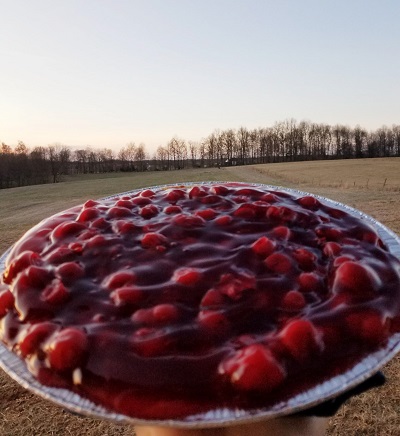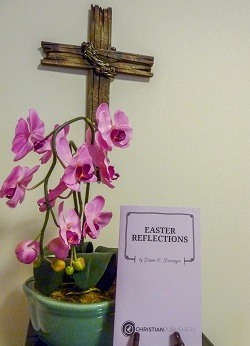Chickens Come Home to Roost
 Chickens come home to roost.
Chickens come home to roost.
- Birds usually return to their nests at night.
- The results of our past actions return to us.
Bad behavior in the past may causes problems in the present or future.
We may get away with bad choices for a while. However, we often suffer for them later. We land in hot water. That is true for what we do and what we say.
We live with the consequences of the choices we make.
Mistakes or wrong choices hurt us and others. We reap what we sow.
- Fail to study: fail a test.
- Hurt other people; expect to get hurt.
- Ignore physical needs; suffer physical pains.
Therefore, we do well to always make right choices.
Be careful what we say and do. What goes around comes around. We don’t want our words and actions coming back to haunt us.
If we follow the straight and narrow, we have no need to worry.
“Turn from evil and do good; seek peace and pursue it” (Psalm 34:14 NIV).
Thanks to Steve and LuAnne Russell for the suggestion. Photo courtesy of Pixabay.
Do you have an expression you want explained or a thought about this one? If so, please comment below.
Subscribe to receive my weekly posts by email and receive a free copy of “Words of Hope for Days that Hurt.”
If you enjoyed this post, please share it with your friends.
 If someone pays us by check, we take it to the bank. The check promises money.
If someone pays us by check, we take it to the bank. The check promises money. My sister-in-law recently described a pie to die for. She told how it:
My sister-in-law recently described a pie to die for. She told how it: When we want to check if something happened, we look in the books.
When we want to check if something happened, we look in the books. I have heard third time’s a charm all my life. Like many older expressions, I could not find its origin.
I have heard third time’s a charm all my life. Like many older expressions, I could not find its origin. Above all, I depend on guidance from my never-failing God.
Above all, I depend on guidance from my never-failing God. Joe Hill wrote about pie in the sky in his 1911 song,
Joe Hill wrote about pie in the sky in his 1911 song,  No holds barred means no rules.
No holds barred means no rules. Teetotal means total or complete.
Teetotal means total or complete.  Congratulations to Harriet Michael, whose name was randomly drawn from my blog subscribers for a free copy of “Easter Reflections.”
Congratulations to Harriet Michael, whose name was randomly drawn from my blog subscribers for a free copy of “Easter Reflections.”  Sharp as a razor means very sharp.
Sharp as a razor means very sharp. We do well if we think before we speak.
We do well if we think before we speak.